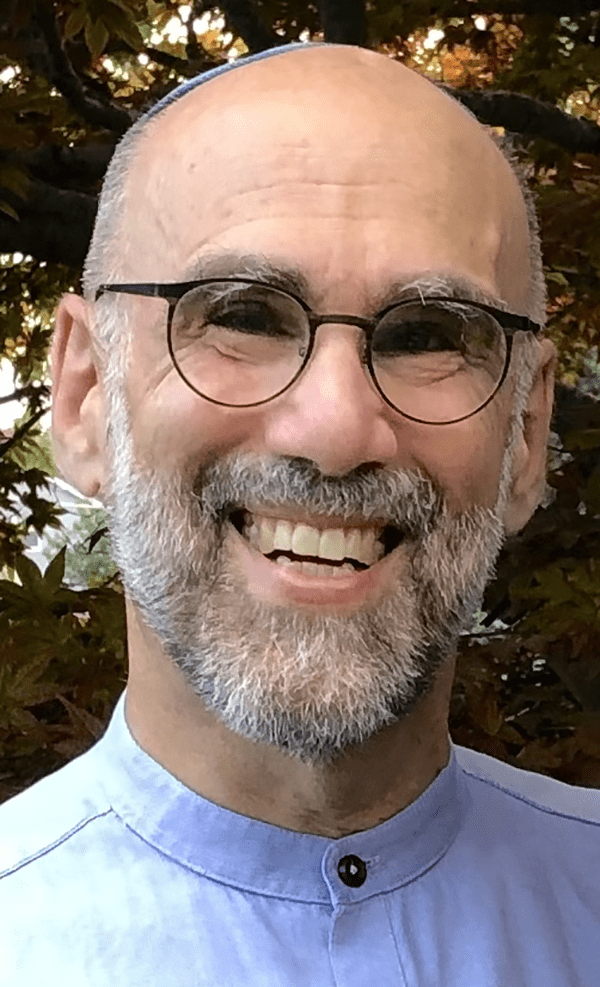Parshat Lech-Lecha 5785
We make assumptions about others based on what we see: what they wear, what they drive, their work, past-times… And we project upon the other who passes our superficial entrance exam what we want them to be — i.e., more like us!
Breath (Yizkor KN5785)
My recent posts...
Can You Hear Me (KN 5785)
My recent posts...
Yom Kippur Singing
My recent posts...Over the decades, I have composed melodies for some of the texts we use in our prayer services. (I've written English interpretations of the texts for a few of them.) Some of them are posted here so we can sing them together at Shirat Hayam and, even...
They Deserve Better
On Thursday, I spoke with a reporter for the Press of Atlantic City. He was working on a story about local Jewish community reaction to the recent FBI alert of a “credible threat” against New Jersey temples. (Click here for the published story.)
The reporter’s questions included: How did your synagogue respond to the alert? (quick review of security, determination to proceed with services), and, what is an appropriate response to this kind of threat? (reaching out across religious lines to foster familiarity with and appreciation of others spiritual practices).
I added that it is vital to advocate for more education in more schools starting at younger ages about the range of religious identification. Because I see racism, hate of the other, as something that is essentially trickle-down: kids get it from their elders, whether parents or older siblings, preachers or teachers.
To effectively fight back, kids need to be taught to accept, to appreciate that people come together in religious or cultural communities that may be different from what they know. Then we might get a trickle-up effect of the young pushing back against hateful attitudes.
Now, we’re not necessarily looking for love! At very least, I believe that we’re hoping for a realization that hating us — or any group, for that matter — will not make your life better.
Then I volunteered to the reporter what has become a recurring thought: we need to retire the term “antisemitism.” We know a whole lot of Jews, right? Other than that “Yo Semite” t-shirt that got a presidential boost in popularity two years ago, have you EVER heard a Jew refer to him/herself as a “semite”?
I bet the answer is NEVER! So why do we persist in using a term that, to me, distances who we are from the reality of Jew Hatred.
The dollar costs of the recent threat may be hard to tally, but we feel what it cost in anxiety. For example, on that Friday I received this text from a community member who is active with ADL: “Is Shirat Hayam encouraging folks to come to services for Shabbat?”
I read the message two ways: Were we going to cancel services in the face of this threat, or, would we encourage increased attendance as a show of resistance and solidarity? We did neither, as the threat was neutralized before Shabbat; attendance at services was pretty much as usual.
I told the reporter that we had gone from our standard level of tension to a heightened level, then back again when the perpetrator was caught.
After the Tree of Life massacre just four years ago today by Jewish time, we all went from relative complacency to a permanent state of tension. It pains me to see how we’ve tempered the welcome we can extend to our congregants and visitors, how we plan activities, schedule classes, or class trips.
It angers me to consider how much of our congregants’ money has been spent on security measures including physical hardening and armed guards at our door. And we’re paying twice! Not only are members assessed a security fee, each of us is paying for much of the literal armor through the taxes that fund state and federal grants we’ve received for such security measures!
It saddens me that this is what we must do to secure our Jewish communal lives. To be openly, proudly Jewish in private and in public.
It frustrates me that this is what we need to do when so many have given so much to protect the freedoms that are the right of every citizen of our country.
Veterans in times of conflict or in relative peacetime, whether in combat or in support — all of them deserve better. Veterans put their lives on hold and on the line to preserve what makes our country worth protecting.
Then some 18-year-old schmuck sits down at a computer and a state’s worth of law enforcement and Jewish communities jump. Or a 46-year-old with an assault weapon massacres eleven congregants in a synagogue, and we mourn while we build literal and figurative walls around our spiritual homes and schools.
This is not why our veterans served. We owe veterans our gratitude, yes, and we owe them better than what we have become.
We owe them the freedom to enter a house of worship without being challenged or frisked, or regarded with wariness; the freedom to wear religious garb in public without fear of being accosted; the freedom to teach Jewish children that they can be loud and proud.
We may argue the limits of free speech, where it runs parallel with or at right angles to life, liberty and the pursuit of happiness. But there are no limits to our appreciation of those who served our country in the name of those ideals. Service like theirs should be an option in a national service obligation for all our young people.
May all of us, veterans and grateful civilians, strive to achieve those ideals in memory of those lost and in honor of those still among us.


